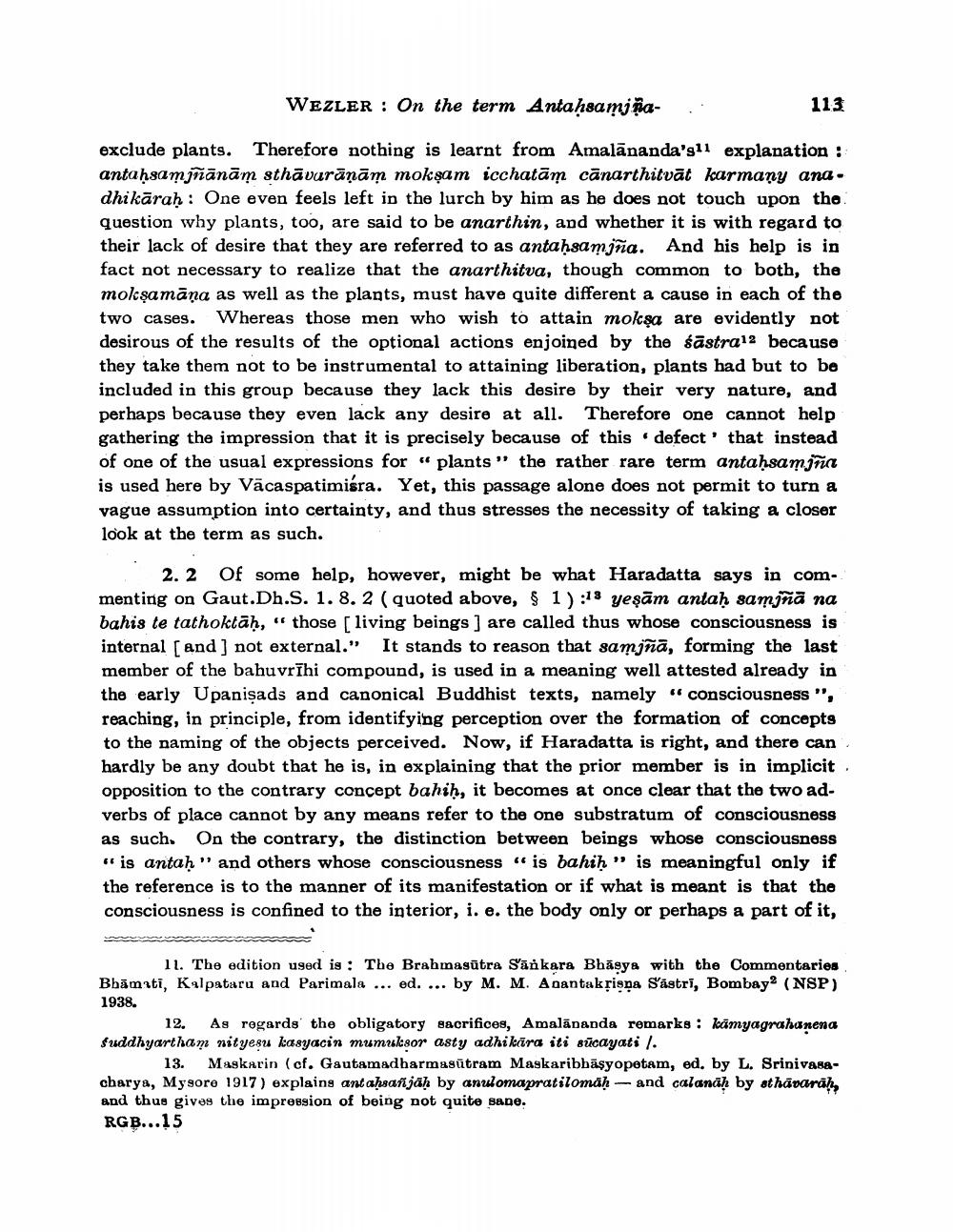Book Title: On Term Antahsamjna Author(s): A Wezler Publisher: A Wezler View full book textPage 3
________________ WEZLER : On the term Antaḥsamjnia- . 113 exclude plants. Therefore nothing is learnt from Amalānanda'gll explanation : antaḥsamjñānām sthāvarānām mokşam icchatām cānarthitvāt karmany ana. dhikāraḥ: One even feels left in the lurch by him as he does not touch upon the question why plants, too, are said to be anarthin, and whether it is with regard to their lack of desire that they are referred to as antaḥsamiña. And his help is in fact not necessary to realize that the anarthitva, though common to both, the mokşamāņa as well as the plants, must have quite different a cause in each of the two cases. Whereas those men who wish to attain mokşa are evidently not desirous of the results of the optional actions enjoined by the śāstral2 because they take them not to be instrumental to attaining liberation, plants had but to be included in this group because they lack this desire by their very nature, and perhaps because they even lack any desire at all. Therefore one cannot help gathering the impression that it is precisely because of this defect' that instead of one of the usual expressions for “ plants" the rather rare term antaḥsamina is used here by Vācaspatimiśra. Yet, this passage alone does not permit to turn a vague assumption into certainty, and thus stresses the necessity of taking a closer look at the term as such. 2. 2 Of some help, however, might be what Haradatta says in commenting on Gaut.Dh.S. 1. 8. 2 ( quoted above, $ 1):18 yeşām antaḥ saminā na bahis te tathoktāḥ," those [living beings) are called thus whose consciousness is internal [and] not external." It stands to reason that samjna, forming the last member of the bahuvrīhi compound, is used in a meaning well attested already in the early Upanişads and canonical Buddhist texts, namely "consciousness", reaching, in principle, from identifying perception over the formation of concepts to the naming of the objects perceived. Now, if Haradatta is right, and there can hardly be any doubt that he is, in explaining that the prior member is in implicit opposition to the contrary concept bahiḥ, it becomes at once clear that the two adverbs of place cannot by any means refer to the one substratum of consciousness as such. On the contrary, the distinction between beings whose consciousness " is antah” and others whose consciousness is bahih” is meaningful only if the reference is to the manner of its manifestation or if what is meant is that the consciousness is confined to the interior, i. e. the body only or perhaps a part of it, 11. The edition used is: The Brahmasūtra Sankara Bhāsys with the Commentaries Bbāmati, Kalpataru and Parimala ... ed. ... by M. M. Anantakrisna Sastrī, Bombay? (NSP) 1938. 12. As regards the obligatory sacrifices, Amaläpanda remarks: kamyagrahanena $uddhyartham nityesu kasyacin mumuksor asty adhikara iti sūcayati J. 13. Maskarin (of. Gautamadharmagūtram Maskaribbäsyopotam, ed. by L. Srinivasacharya, Mysore 1917) explains ant ahsañjāḥ by anuloma pratilomah -- and calanāh by sthāvarāh, and thus gives the impression of being not quite sane. RGB...15Page Navigation
1 2 3 4 5 6 7 8 9 10 11 12 13 14 15 16 17 18 19 20 21
